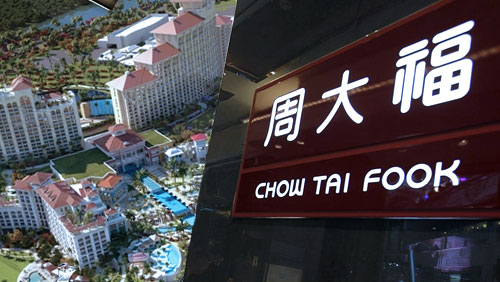Casino resorts investor Chow Tai Fook Enterprise (CTFE) announced that it is in talks to acquire the Baha Mar resort casino in the Caribbean archipelago of the Bahamas.
 In a statement, the developer—owned by the family of tycoon Henry Cheng Kar-shun—said it has applied to the government of the Bahamas for the approval to become an investor and acquirer of the stalled $3.5 billion holiday resort.
In a statement, the developer—owned by the family of tycoon Henry Cheng Kar-shun—said it has applied to the government of the Bahamas for the approval to become an investor and acquirer of the stalled $3.5 billion holiday resort.
“CTFE is looking forward to having Baha Mar join its portfolio of world-class integrated resort development projects,” CTFE chairman Henry Cheng said in a statement. “We are fully committed to this project and plan to hire as many Bahamians as possible to work at the property.”
CTFE, which did not provide any financial details on the negotiations, said it would invest heavily in pre-opening activities ahead of the official deal completion which would help boost local employment.
The Hong Kong-listed developer, however, is in for a stiff competition at the negotiating table.
BMD Holdings announced last week that it has tabled a proposal with the Export-Import Bank of China (EXIM) to acquire Baha Mar at a price “higher than that which EXIM or the EXIM-related entity, Perfect Luck Assets Limited may be able to obtain from any other possible buyer.”
The company pointed out that there is no deal yet between CTFE and EXIM.
“If indeed Chow Tai Fook Enterprises and CEXIM/Perfect Luck are in negotiations, then it can only serve the interests of the seller and The Bahamas to have a competitive process to achieve the best outcome. BMD stands fully prepared to engage with the seller to achieve such,” BMD said in a statement.
In August, the Bahamian government announced that the stalled $3.5b Baha Mar project had been sold to an unidentified buyer, which was later revealed as Perfect Luck Holdings Ltd, a special purpose vehicle (SPV) set up by EXIM, Baha Mar’s primary creditor.
The bank reportedly opted to sell Baha Mar to Perfect Luck after none of the bidders came close to ensuring EXIM would recoup the full $2.45b it has contributed toward the project. The sale may also allow EXIM to temporarily offload its Baha Mar losses onto another company’s balance sheet until the ultimate sale concludes.